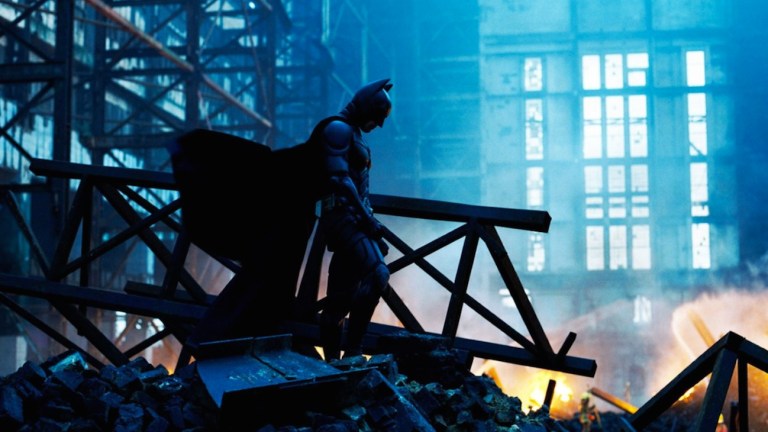The Dark Knight’s Most Famous Line Was Almost Cut by Christopher Nolan
The Dark Knight has tons of iconic lines. But the most important line baffled Batman and Oppenheimer director Christopher Nolan.

Within weeks of its release in the summer of 2008, The Dark Knight cemented its place in popular culture. People were quoting the Joker, debating Batman’s questionable surveillance tactics, and praising the film’s grounded take on superheroes, even before the movie hit home video.
Obviously, The Dark Knight means a lot to everyone who sees it. Well, almost everyone. A key part of the movie doesn’t mean anything to one of the most important people involved in the movie: director Christopher Nolan.
“I’m plagued by a line from The Dark Knight, and I’m plagued by it because I didn’t write it,” Nolan recently told Deadline while promoting another resonant film, Oppenheimer. “My brother [co-screenwriter Jonathan] wrote it.”
The line in question: “You either die a hero or you live long enough to become the villain.”
Harvey Dent (Aaron Eckhart) speaks those words to Bruce Wayne (Christian Bale) and Rachel Dawes (Maggie Gyllenhaal) early in The Dark Knight. In the moment, the line convinces Bruce to throw his fundraising support behind Harvey, hoping that the crusading District Attorney can clean up Gotham enough to render the Batman unnecessary. It also serves as a deft bit of foreshadowing, not only to Harvey’s eventual fall, as he’s transformed into Two-Face in the third act, but also toward Batman’s decision to become a villain in the eyes of the public in order to preserve Harvey’s reputation as Gotham’s white knight.
“It kills me, because it’s the line that most resonates. And at the time, I didn’t even understand it,” confessed Nolan. “I read it in his draft, and I was like, ‘All right, I’ll keep it in there, but I don’t really know what it means. Is that really a thing?'”
The cynical among us might think that Nolan’s decision to keep a line that he didn’t understand proves that the director doesn’t care about dialogue (a point that might explain his sound mixing). However, it more likely points to his faith in his brother as a writer. Jonathan’s story “Memento Mori” inspired Christopher’s breakout Memento, and Jonathan wrote or co-wrote the scripts for The Prestige, Interstellar, and The Dark Knight Rises.
For as much as he creates giant blockbuster films, Nolan has always taken a family approach to filmmaking. In addition to his brother Jonathan, Nolan also works closely with his wife and producer Emma Thomas. He loves to use the same actors again and again, including Michael Cain and Cillian Murphy. One suspects that his decision to avoid composite characters in Oppenheimer has less to do with a desire for historical accuracy and more to create a large community of performers.
As much as people talk about Nolan as an auteur, he repeatedly shows his willingness to collaborate and work with others. And as the faith that he put in Jonathan demonstrates, that approach pays off, something even he can see. “[O]ver the years since [The Dark Knight‘s] come out, it just seems truer and truer,” he says of the one-time mystifying line. “In this story, it’s absolutely that. Build them up, tear them down. It’s the way we treat people.”
Is Nolan overthinking things? Is he making claims that a superhero movie can’t really back up? Maybe, to which we can only respond with another iconic line from the movie: “Why so serious?”
